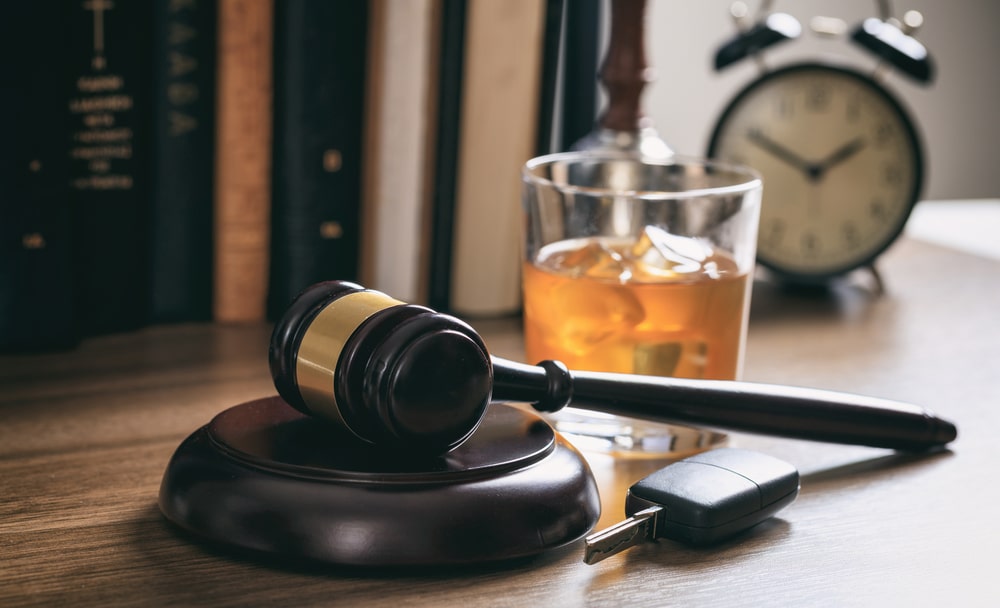What To Expect After A DUI Arrest: A Step-By-Step Guide
Driving under the influence (DUI) and then being arrested can be an intense and terrifying event. It’s crucial to understand the steps that follow such an arrest to better navigate the legal process and protect your rights. This guide outlines what typically happens after a DUI arrest, from the initial stop to the court proceedings. […]

dui lawyer monticello in
Driving under the influence (DUI) and then being arrested can be an intense and terrifying event. It’s crucial to understand the steps that follow such an arrest to better navigate the legal process and protect your rights. This guide outlines what typically happens after a DUI arrest, from the initial stop to the court proceedings. Consulting with an experienced Scottsdale DUI law firm is crucial to navigating the legal process and achieving the best possible outcome for your case.
The Traffic Stop And Arrest
The DUI process usually begins with a traffic stop. Law enforcement officers may pull you over for a variety of reasons, such as erratic driving, speeding, or a routine checkpoint. They will probably ask you to do field sobriety tests, such as standing on one leg or walking in a straight line, if they think you are impaired by drugs or alcohol.
If the police believe there is a likely cause, they could offer you a breathalyzer test to ascertain your blood alcohol content (BAC). A BAC of 0.08% or higher typically results in an immediate arrest for DUI. However, even if your BAC is below this level, you can still be arrested if the officer believes you are impaired.
Booking And Processing
You will be brought to a police station to be booked after the arrest. This process involves taking your fingerprints, photographing you, and recording personal information. Your personal belongings will be confiscated, and you may be required to change into jail attire.
At this stage, you may be asked to submit to further chemical testing, such as a blood or urine test, to confirm your BAC or the presence of drugs. Your driver’s license may be suspended as one of the additional consequences for refusing these tests.
Initial Court Appearance (Arraignment)
Following the booking, you will be scheduled for an arraignment, which is your first court appearance. Formally, the accusations against you will be given during the arraignment; you will be asked to make either a guilty, not guilty, or no-contest plea.
If you plead guilty or do not contest, the case will move directly to sentencing. If you plead not guilty, the case will proceed to a pretrial phase, where both the defense and prosecution will gather evidence, negotiate, and prepare for a potential trial.
Release On Bail
In some cases, you may be released on bail before your arraignment. A quantity of money known as bail is given to the court as assurance that you will show up for your scheduled court dates. The amount of bail varies depending on factors such as your criminal history, the severity of the DUI charge, and the risk of fleeing the jurisdiction.
If bail is granted and paid, you will be released from custody until your court date. If you cannot afford bail, you may remain in custody until your arraignment.
License Suspension
Your driver’s license may be suspended as one of the initial repercussions of a DUI arrest. This can occur even before your court case is resolved, depending on state laws. You usually only have a short window of time to ask for a hearing in order to contest the suspension, though this is not always the case.
You might be able to drive to work, school, or doctor’s appointments if your license is suspended and you qualify for a limited or hardship license. However, if alcohol is found on your breath, you could need to put an ignition interlock device on your automobile, which stops the car from starting.
Pretrial Proceedings
If you plead not guilty at your arraignment, your case will move into the pretrial phase. Your lawyer will go over all of the evidence against you during this time, including breathalyzer test results, police records, and any video that shows your arrest.
If your lawyer feels that you were not treated fairly throughout the arrest or investigation, they may move to suppress evidence or to have the case dismissed. During pretrial conferences with the prosecution and your attorney, a plea deal where you acknowledge guilt to a lesser charge in exchange for fewer penalties may be reached.
Trial
In the event that your case is tried, a judge or jury will hear it. Your lawyer will refute this evidence and offer a defense, while the prosecution will present witnesses and other evidence to support their case that you were operating a vehicle while intoxicated.
A DUI trial can involve complex legal arguments, and the outcome is never guaranteed. The charges will be dropped if you are found not guilty, and you will be allowed to leave. Should you be found guilty, the judge will decide on your sentence, which might include community service, mandated alcohol education programs, probation, jail time, and fines.
Sentencing And Penalties
The consequences of a DUI conviction can differ significantly depending on the specifics of your case. First-time offenders may face lighter sentences, such as fines and probation, while repeat offenders or those involved in accidents may receive harsher penalties, including extended jail time and larger fines.
A DUI conviction can result in long-term repercussions, including higher insurance premiums, trouble obtaining work, and a permanent criminal record, in addition to the legal penalties.
Conclusion
A DUI arrest is a serious matter with potentially life-altering consequences. Knowing what comes next can help you minimize the effects on your life and safeguard your rights by enabling you to make well-informed decisions and appropriate actions. To successfully navigate the legal system and get the best result for your case, you must speak with an experienced DUI attorney.
